Iran Accuses US Of Introducing New Demands in Nuclear Talks
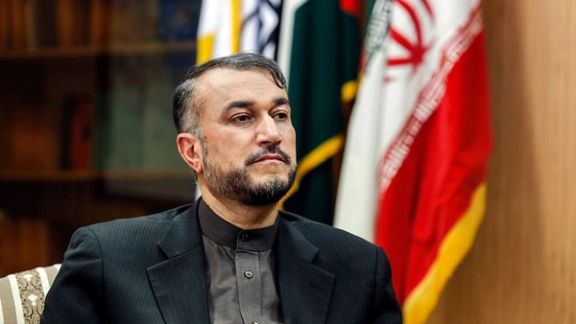
New demands by the US in talks to revive the 2015 nuclear deal are unjustified, Iran’s Foreign Minister Hossein Amir-Abdollahian told EU’s foreign policy chief.

New demands by the US in talks to revive the 2015 nuclear deal are unjustified, Iran’s Foreign Minister Hossein Amir-Abdollahian told EU’s foreign policy chief.
The foreign minister did not explain what Washington’s new demands were, but he made an indirect reference to Tehran’s insistence on lifting US sanctions imposed on the Revolutionary Guard (IRGC) and several high-ranking officials.
Amir-Abdollahian told EU’s Jodep Borrell that “Some issues are related to our national heroes and cannot be discussed,” according to Fars news in Tehran affiliated with the IRGC.
Reports emerged last week that the Biden Administration has agreed to lift sanctions imposed on IRGC and several former and current Iranian officials implicated in terror-related activities.
The news led to protests by Republicans and others in the United States. Several lawmakers wrote to President Joe Biden asking him to stop talks aimed at reviving the Obama-era nuclear deal known as JCPOA.
Amir-Abdollahian told Borrell, according to Fars, that Tehran cannot accept US requests based on American domestic opposition to certain points discussed in the nuclear talks.
“America cannot use the excuse of public opinion to say something new every day…If America has a public opinion problem…we also have,” the minister said.
Russia on Saturday introduced new demands asking exemption from Ukraine sanctions in its dealings with Iran, adding a new complicating factor in the Vienna talks. Iran has not opposed Russia’s demands, insisting that the US is delaying an agreement.
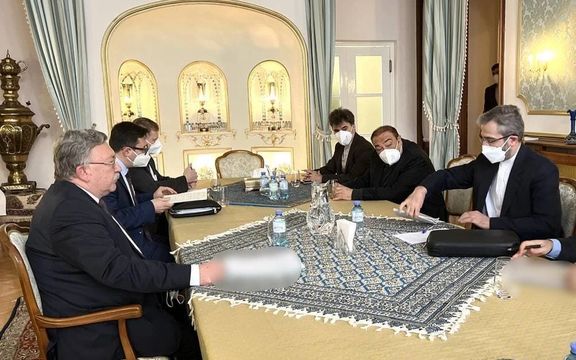
Iran’s top national security official Ali Shamkhani says that nuclear talks with world powers "get knottier by the hour", as Russia has introduced new demands.
Russia has demanded US guarantees that sanctions over Ukraine would not affect its trade and wider relations with Tehran, before it agrees with a nuclear deal negotiated in Vienna for over 11 months.
Iran has not opposed the last-minute Russian demands. Instead, both Moscow and Tehran blame the US for "lacking political resolve" to reach a deal to restore the Joint Comprehensive Plan of Action (JCPOA), and the US does not appear to be willing to accept the Russian demands.
Moscow denies that it is holding the JCPOA hostage to its own interests as many in Iran claim and insists on having free trade with Iran despite sanctions imposed on Moscow over its invasion of Ukraine.
Secretary of Iran’s Supreme National Security Council (SNSC) Ali Shamkhani in a tweet Thursday said the talks "get knottier by the hour" and accused the US of not being interested in a "strong deal" but made no reference to Moscow's new demands.
“US approach to Iran's principled demands, coupled with its unreasonable offers and unjustified pressure to hastily reach an agreement, show that US isn't interested in a strong deal that would satisfy both parties. Absent US political decision, the talks get knottier by the hour,” Shamkhani said in his tweet.
On Thursday Tasnim News Agency which is linked to the Revolutionary Guards quoted "an informed source" as saying that "at least 3 or 4 major and secondary issues" remain unresolved in the talks in Vienna that the Western side should address.
The source accused the US of "psychological and media operations" to project the blame on others instead of "real negotiation." This could refer to briefings from US and western European officials in response to Lavrov's demand.
According to the Wall Street Journal correspondent Laurence Norman Moscow officially presented its new demand in the form of an updated "non-paper" to the to the EU on Tuesday. The Russian envoy in the talks, Mikhail Ulyanov, has admitted that Moscow's demands, apparently outlined in the "non-paper", have not been received well by the other parties.
"There’s nothing that should be required of or will be offered from the United States as it relates to Russia sanctions — that is related to their invasion of Ukraine," White House Spokeswoman Jan Psaki on Wednesday evening when asked about reports that Russia is delaying the signing of the JCPOA for its own interests.
Ulyanov told reporters last week that the talks were approaching the finishing line and even suggested it could be signed as early as the past weekend or Monday this week, but on Wednesday he said that there was still "no final text" of an agreement so the Russian position could not be blamed for a delay in reaching an agreement over the restoration of the JCPOA.
"In view of the new circumstances and wave of sanctions against Russia we have the right to protect our interests in the nuclear field and wider context," Ulyanov said on Wednesday and explained that the United States and European Union must make it clear that sanctions must not affect the implementation of Moscow's nuclear projects in Iran or its trade and economic relations with Tehran neither at present nor in the future.
Two Western diplomats told Reuters on Wednesday that it was still not clear what the exact nature of Moscow's demands were, while a European diplomat said Russia was demanding sweeping guarantees on trade between Moscow and Tehran, demands that were deemed unacceptable.
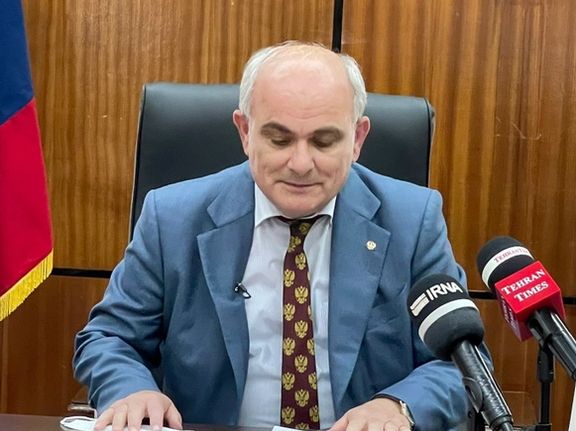
Russia’s envoy in Tehran Wednesday tried to smooth out negative reactions to Moscow’s demands tying Western sanctions over Ukraine to the Iran nuclear talks.
"We want the JCPOA to be settled but our own interests are important to us. These will benefit Iran too," Levan Dzhagaryan (Jagaryan) said Wednesday in response to a question about allegations that after its invasion of Ukraine, Moscow has taken the 2015 deal, Joint Comprehensive Plan of Action (JCPOA) hostage to its own interests.
"We need guarantees these sanctions [imposed by Washington on Moscow] will in no way affect the trading, economic and investment relations contained in the Joint Comprehensive Plan of Action for the Iranian nuclear program," Lavrov said Sunday according to Tass.
The Russian ambassador made the remarks at a press conference with selected Iranian media outlets for clarification of the Russian Foreign Minister Sergei Lavrov's controversial remarks earlier this week.
Implementation
Russia is widely expected to play a central role in implementing a restored JCPOA, especially in removing stocks of enriched uranium in excess of JCPOA limits, a task it undertook when the agreement was reached in 2015.
Lavrov’s remarks Saturday sparked accusations in Iran of Russian ‘blackmail,’ reflecting a growing hostility to Russia in both the media and social-media platforms seen last month in objections to the Russian ambassador honoring Alexandr Griboyedov, a Russian diplomat and writer murdered by a Tehran mob in 1829.
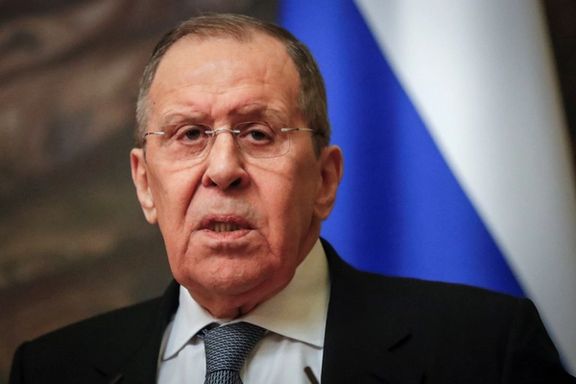
Dzhagaryan told the press conference Wednesday that as an ambassador he was not privy to every piece of information but warned against attempts to divide Moscow and Tehran.
" I can't offer any details as only top officials in Tehran and negotiators in Vienna are aware of them,” he said. “Our interests are important to us but our interests are not to the detriment of others. Don't you think the western [powers] want a division between us? Be aware that our officials, Mr Lavrov and Mr [Hossein] Amir-Abdollahian [Iran’s foreign minister] are in continued contact.”
Equal rights
The Iranian foreign ministry’s spokesman Saeed Khatibzadeh said Monday that Tehran was waiting for “details” having “seen and heard” Lavrov’s comments in the media. The Russian foreign ministry on Monday reported a phone call between Lavrov and Amir-Abdollahian noting agreement that "all participants" in the JCPOA should have "equal rights in relation to the unhindered development of cooperation in all areas without any discrimination.”
The 2015 deal was signed by Iran and the permanent members of the UN Security Council plus Germany (5+1), limiting the Iranian nuclear program, and lifting a raft of United Nations, European Union and US sanctions. The US left the deal in 2018 and imposed ‘maximum pressure’ sanctions designed to end Iranian oil exports and break any links between Iran and the international financial sector.
The remaining signatories – China, France, Germany, Russia, and the United Kingdom – have all argued the US should lift sanctions incompatible with the JCPOA while Tehran should return its nuclear program, expanded since 2019, to JCPOA limits. While promising to revive the JCPOA, President Joe Biden has kept that sanctions in place during the talks.
US Secretary of State Antony Blinken stressed Tuesday that Moscow and Washington – regardless of the Ukraine crisis - shared an interest in reviving the JCPOA. But Victoria Nuland, Undersecretary of State for Political Affairs, told a Senate Foreign Relations Committee hearing on Tuesday that Russia was “trying to up the ante and broaden its demands with regard to the JCPOA.” She insisted: “We are not playing 'Let's Make a Deal.’”
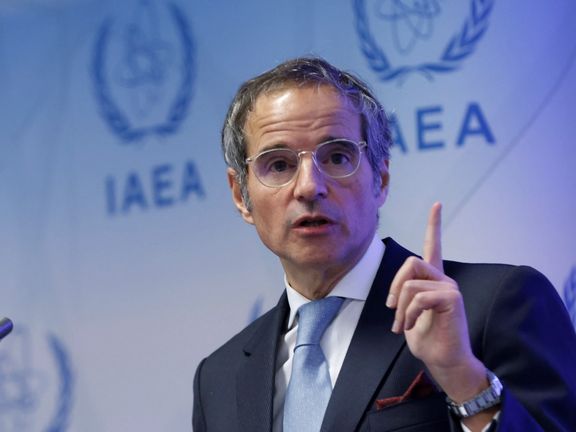
Tensions between the European Union and Russia blew up at the International Atomic Energy Agency board meeting Wednesday as the EU led a walkout.
Stephan Klement, head of the EU delegation to the IAEA, tweeted that the move had been in “response to unacceptable remarks” by Russia. Klement condemned “Russian military aggression” against Ukraine and “resulting nuclear threats to safety of Ukrainian facilities.”
Klement did not tell Twitterati what the Russian had said. Neither did Reuters news agency in its initial report. Russian news media is now generally blocked in the EU.
In his report to the board Monday, IAEA chief Rafael Mariano Grossi highlighted “two major issues high on the international community’s agenda…the safety and security of Ukraine’s nuclear power plants amid the…military conflict, and second, making progress on the clarification of the outstanding safeguards issues” with Iran.
Russia in the 1990s withdrew all nuclear weapons from Ukraine, which had hosted a large part of the Soviet atomic arsenal, but Ukraine has several nuclear facilities, including the decommissioned Chernobyl plant, which is now occupied by Russian forces and has lost electric power, raising fears of a radiation leak.Ukraine’s state-run nuclear company Energoatom said Wednesday fighting between Ukrainian and Russian forces made it impossible to immediately repair the high-voltage power line to the plant.
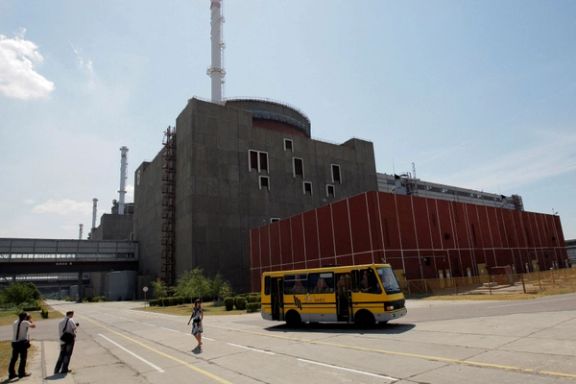
Grossi expressed concern in his report Monday that the Zaporizhzhya nuclear power plant, also now under Russian control, been hit by a shall, causing a fire but no release of radiation.
Ukraine crisis, Iran talks
There has been rampant speculation over links between the Ukraine crisis and the Vienna talksover reviving the 2015 Iran nuclear agreement since Saturday when Russian foreign minister Sergei Lavrov said Moscow wanted assurances that Ukraine sanctions would not impact its economic and other ties with Iran, including its role in implementing the JCPOA, if a new agreement is reached.
Lavrov said that an “avalanche of aggressive sanctions that have erupted from the West − and which I understand has not yet stopped” meant Moscow needed a “guarantee that these sanctions will not in any way touch the regime of trade-economic and investment relations which is laid down in the Joint Comprehensive Plan of Action."
Playing down Lavrov’s concerns, the United States Secretary of State Antony Blinken Tuesday noted that Russia was “still engaged” in efforts to revive the JCPOA and stressed Washington’s and Moscow’s shared intertest in restricting Iran’s nuclear program.
In Vienna Wednesday, the US Deputy Chief of Mission to the IAEA Louis Bono told the board that Iran needed to answer agency questions over its nuclear work before 2003 as “a legal obligation separate from its JCPOA commitments.” Bono said that “significant concerns” over Iran’s responsibility for transparency under the Nuclear Non-Proliferation ‘safeguards’ rules “remain unresolved after more than two years because of Iran’s lack of substantive engagement.”
Bono welcomed the March 5 statement by Grossi and Mohammad Eslami, head of the Atomic Energy Organization of Iran, setting out a timetable by which Tehran would satisfy the agency over its queries by June 20. Bono cited Grossi in saying, “the only way these issues go away is if they are clarified to the full satisfaction of the IAEA.”
But he added, “We remain deeply concerned by the Director General’s reports that since February 2021 Iran has stopped implementing its Additional Protocol. This significantly impacts the ability of the Agency to provide credible assurance of the absence of undeclared nuclear material and activities in Iran.”
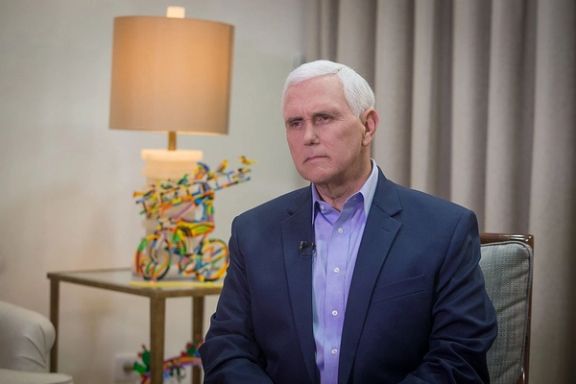
Former US vice president Mike Pence says the next American administration will be Republican and will again pull out of the nuclear deal with Iran.
During a visit to Israel on Tuesday, Pence told the Israel Hayom newspaper “I believe that the Republican Party will win control of the House and Senate in 2022 and I believe we’ll win back America and the White House in 2024… we will have a Republican president, a Republican administration”.
“And if the JCPOA [Iran deal] finds a way to be resurrected, we will be a part and a voice of a chorus of Americans with that new administration coming into office to end the JCPOA just as quickly as we ended it under the Trump-Pence administration.”
He added that “We isolated Iran like never before, we challenged their malign activities…[and] it was our administration that took down Qassem Soleimani.”
Pence noted it was “incomprehensible” to him to see the Biden administration contemplating “buying oil from Iran while we’re cutting off oil and gas exploration in the United States.”
Pence also told Fox News from Jerusalem on Tuesday that “When our administration tore up the [Iran nuclear] deal, it’s because we recognized that not only did it not prevent Iran from obtaining a nuclear weapon, it guaranteed that they would be able to obtain a nuclear weapon in 10 years."
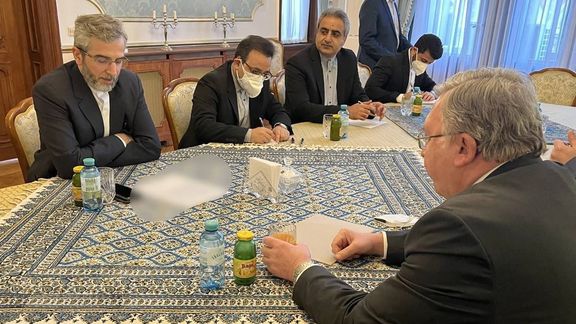
A senior Iranian politician says Tehran should start direct talks with Washington to cut out mediators like Russia who pursue ulterior motives in the nuclear talks.
The former chief of Iranian parliament's National Security and Foreign Policy Committee Heshmatollah Falahatpisheh told local media that the Russians wish to return Iran's nuclear dossier to the United Nation's Security Council.
In an interview with Khabar Online website in Tehran, Falahatpisheh also said that Iran should make sure Russia will not once again become the main player in Iran's diplomacy.
Russian Foreign Minister Sergey Lavrov's comments demanding the exclusion of Moscow's economic ties with Iran from the sanctions imposed on Russia by the West, has once again brought Tehran-Moscow relations under the spotlight, and created uncertainty in nuclear talks that diplomats worked for 11 months to shape.
He added that under the circumstances, it is in everybody's interest that Iran gets rid of mediators and engages in talks with the United States for better results.
In another part of the interview Falahatpisheh said it was a mistake by President Ebrahim Raisi to call Russian President Vladimir Putin on the first day of the Ukraine invasion. During the telephone conversation, Raisi expressed support for Russia's position in the war and blamed the West for the Ukraine crisis.
Falahatpisheh has warned that Iran should do its best to avoid the dangerous return of its nuclear case to the UNSC. The solution he suggested for this is maintaining direct dialogue with the United States. He said that it is the Russia’s policy to tie everything to the Ukraine crisis in one way or another. He also charged that Russian negotiator Mikhail Ulyanov did his best during the Vienna talks to prevent the shaping of an agreement between Iran and the West.
Russia has publicly backed the restoration of the 2015 nuclear agreement, the JCPOA and the Vienna talks.
Falahatpisheh suggested that Iran should not make itself a prisoner of history. "Tehran should see and understand modern history and find out that Russia is playing with it," he said, adding that the Russians have not contributed to Iran's bargaining power in the negotiations. Falahatpisheh also suggested that Iranians should not wait for Russia to make a move.
He said, however, Iran should not easily give up its nuclear program and its progress, like Libya did under Muammar al Ghaddafi or Ukraine did after the Soviet Union. "We know what happened to Libya and Ukraine," Falahatpisheh said, Iran should use its nuclear program as part of the country's development plan. Companies from all over the world can be Iran's partners to ensure economic growth.
Meanwhile, according to the reformist newspaper Sharq while an agreement with the West appears to be at hand, radicals at the Iranian Parliament (Majles) are expressing their opposition to what Iran’s negotiators have achieved in Vienna. According to Sharq, the radicals who constitute a small minority in the parliament, not only oppose the negotiating team, but they are also working against Iran's national interests. Sharq called the group, presumably the most radical elements of the ultraconservative Paydari party "The anti-agreement committee."
This comes while under the current circumstances and Russia's obstructionism, the negotiators need support from inside the Iranian political establishment more than before.
The committee members, wrote Sharq, bullied Foreign Minister Hossein Amir Abdollahian during his visit to parliament on Monday to brief the MPs. Sharq wrote that "independent and moderate MPs" did not show up at the meeting with the minister although they were invited to the meeting.